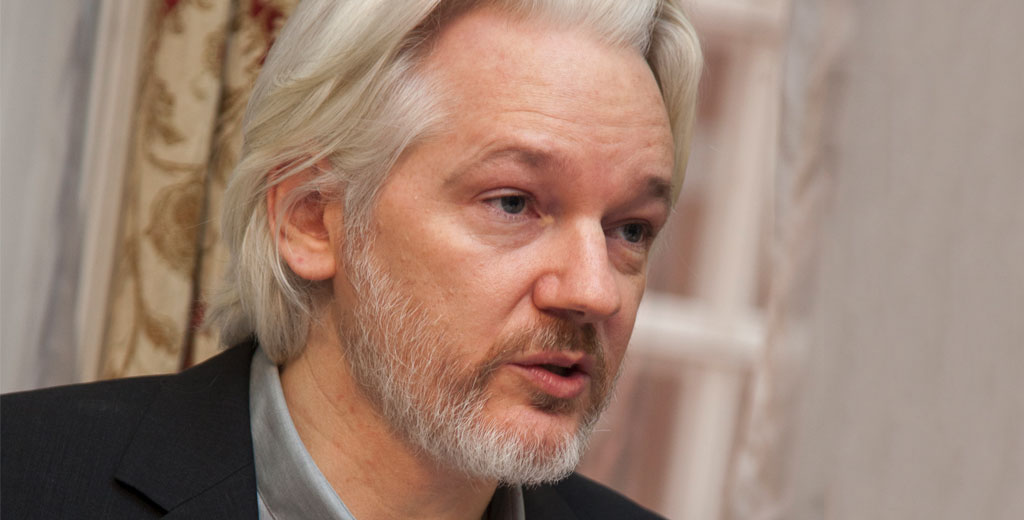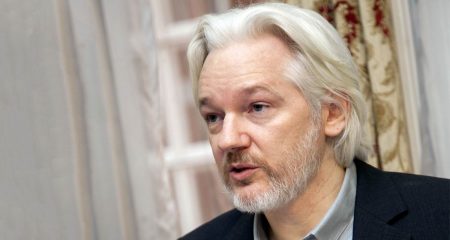
WikiLeaks founder Julian Assange moved closer to freedom Friday after Swedish prosecutors moved to drop a rape investigation against him, leaving the door open for him to emerge from his self-imposed exile in a London embassy.
Sweden prosecutor Marianne Ny said Friday that her office will drop an investigation into Assange regarding suspected rape, according to an e-mailed statement. Her office will hold a press conference Friday.
“The detention order has been revoked,” according to the prosecutor’s memo to Stockholm’s district court. Considering that all possibilities to take the investigation further have been exhausted it no longer appears “proportional to uphold the decision about detention of Julian Assange in absentia and maintaining the European detention order. I have therefore revoked the decision to detain Julian Assange in his absence.”
The 45-year-old sought refuge at the Ecuadorian embassy in London in June 2012, after exhausting options in UK courts to avoid extradition over the allegations stemming from a 2010 trip to Sweden. He has refused to return to the Scandinavian country, citing risks he will be extradited to the US over the release of secret documents.
London’s metropolitan police said the prosecutor’s decision left Assange wanted for a “much less serious offence” and the police “will provide a level of resourcing which is proportionate to that offence”.
“The priority for the [metropolitan police] must continue to be arresting those who are currently wanted in the capital in connection with serious violent or sexual offences for the protection of Londoners,” the police said in an e-mailed statement.
One police car with three cops inside was parked outside the embassy on Friday. London police ended the round-the-clock guards at the Ecuadorian embassy in October after anger over the cost. UK government offices referred comment on Assange’s case to the police.
The Australian was the world’s best-known activist hacker in 2012 when he walked into Ecuador’s embassy, a modest row house in London, applying for humanitarian asylum rather than face questioning in Sweden over accusations of rape and sexual molestation.
WikiLeaks walks like a hostile intelligence service and talks like a hostile intelligence service
He said American officials made up the case in an attempt to have him extradited. The US opened a criminal investigation into WikiLeaks after the organisation published hundreds of thousands of leaked state department cables in 2010.
Although he has not been formally charged, Assange has often implied — without much hard evidence — that the US would gladly try to assassinate him.
WikiLeaks played a central role in the 2016 presidential race when it published e-mails stolen through hacking the Democratic National Committee and later from John Podesta, chairman of Hillary Clinton’s campaign. US intelligence agencies have concluded that Russia was behind the hacking in an effort to interfere with the US political process, damage Clinton’s campaign and ultimately help Republican Donald Trump win the White House.
In April, Central Intelligence Agency director Mike Pompeo said Assange was the leader of a hostile force that threatens the US.
“It is time to call out WikiLeaks for what it really is — a non-state hostile intelligence service” often aided by nations such as Russia, Pompeo said on 13 April in his first public speech after becoming head of the agency. “WikiLeaks walks like a hostile intelligence service and talks like a hostile intelligence service.”
The group has encouraged followers to pursue jobs at the CIA in order to pilfer intelligence, Pompeo told the audience at the Centre for Strategic and International Studies in Washington. He denounced Assange, who calls himself a champion of transparency in government, as a “narcissist” and a “fraud — a coward hiding behind a screen”.
Russia’s role remains the subject of multiple investigations by congressional intelligence committees and the FBI, which has said it’s looking into whether any associates of Trump had contact or colluded with Russian government operatives.
Assange has denied that he was given the leaked documents by Russia, although he has refused to say where he got them. — (c) 2017 Bloomberg LP
- Reported with assistance from Vernon Silver, Max Chafkin, Niclas Rolander and Veronica Ek



